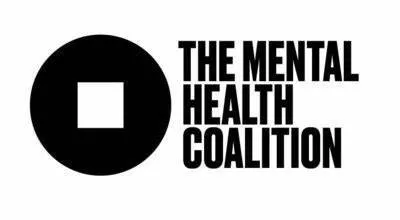Michelle's Story
The Story
The following story has mentions of suicide, abuse, and substance use. If you or someone you know is in danger, is going through an emergency, or needs immediate attention, get help now. More mental health resources can be found here.
I am from a small town outside of Baton Rouge. I have a master’s degree in social work and am currently working as a Community Engagement and Peer Support Specialist, where I get to use my lived experience as someone dealing with Bipolar Disorder and Substance Abuse Disorder. My wife and I have been together for 18 years and just celebrated 8 years of marriage.
When I was young, I faced several challenges as my father was physically and emotionally abusive, while my mother struggled with alcoholism and her own mental health issues. My mother and I were reunited when I was 13, but we had both been through so much and we no longer knew one another. Years of sadness and pain to turn into rage and anger. By the time I turned sixteen, I was drinking every day. After attempting suicide in high school, I was sent to a mental hospital and diagnosed with Bipolar Disorder and Substance Use Disorder. At the worst times I would feel worthless, like I was a burden simply by existing on this earth.
Everything in my life has been affected by my mental illness. I was unable to keep a job for years at a time. I would do okay for a little while and then when a manic episode would hit, I would stop going and just disappear, sometimes for weeks. After a manic episode, I wouldn’t be able to get out of bed due to the depression and I would isolate myself from family and friends.
In 2013, things got so bad that I attempted to take my own life once again. I was overcome from the pain and sorrow of my 9-year-old son waking up without me. After that moment, I began fighting for my life, for my son’s life, and I made a promise that if I survived, I would never stop fighting. And I have kept that promise now for over 10 years and counting.
After several months, I was able to find the right resources and doctors, and eventually the right medication. Once I had the help I needed, I was able to realize I had a choice in how I was feeling and became aware of how my actions affected those around me. Through medication and therapy, I found myself thinking about consequences and began making the appropriate choices. I learned the importance of keeping a schedule and began working out. I committed myself to recovery by keeping my appointments with the doctor, I told the truth to my social worker, and involved myself in support groups. A year after I began recovery, I began facilitating my own mental health group, and soon after I became certified as a peer support specialist.
Most of my days are good, but I am by no means cured. Today, I am able to recognize when something is off, and I have learned what my triggers are and how to cope with them in a healthy way. None of this could have been possible without the love and support of my wife and children. They never gave up on me and have been cheering me on since day one. They believed in me even when I didn’t, and they are the reason I am able to sit here writing this today.
Finding Support
Related Resources
-
Online interactive tool(s)
Take a Mental Health Test | Mental Health AmericaMental Health America provides online screening tools for a variety of mental health conditions. Online screening is one of the quickest and easiest ways to determine whether you are experiencing symptoms of a mental health condition. -
How-to article
Starting a conversation with someone about their mental health | Mental Health AmericaThere are simple things that every person can say or do to help the people in their life who are struggling to get through the tough times. Learn how to start a conversation with someone about their mental health. -
Online directory | Support group
Find Support Groups | Mental Health AmericaMental Health America offers a list of online and in-person support groups for different communities, mental health conditions, and life challenges. -
Online interactive tool(s)
Roadmap to Trauma & PTSD | The Mental Health CoalitionThis Roadmap provides an understanding of what trauma and PTSD are, their potential impact, how to cope, and where to find credible resources to further your healing journey.

